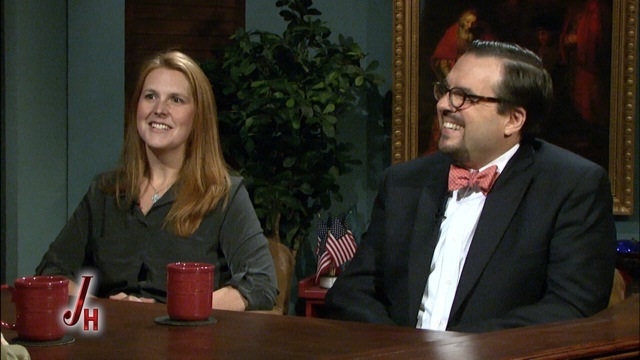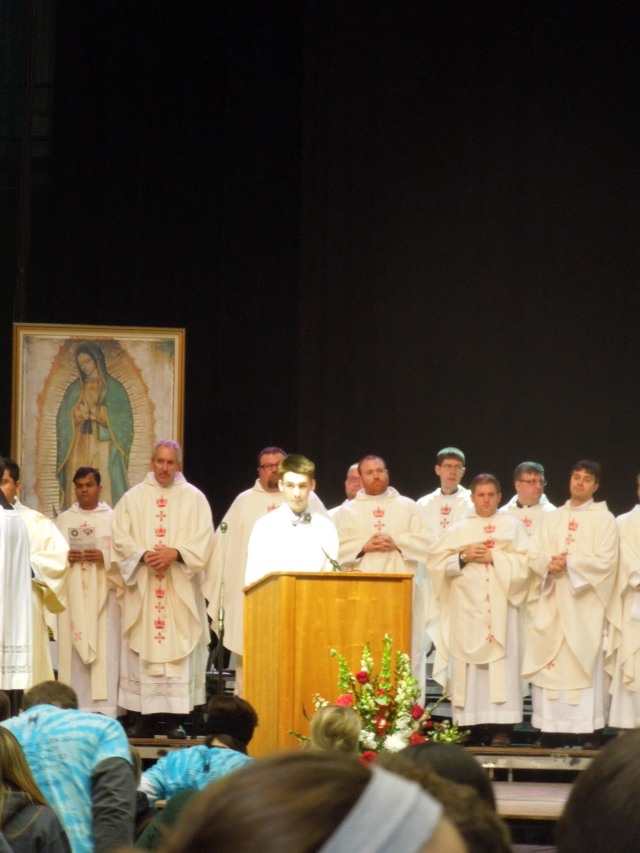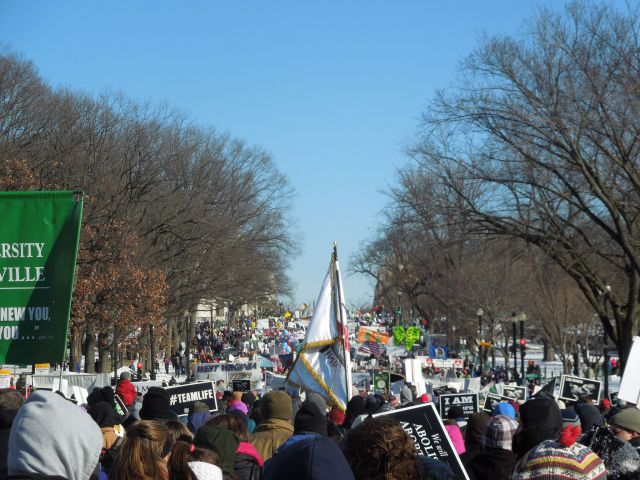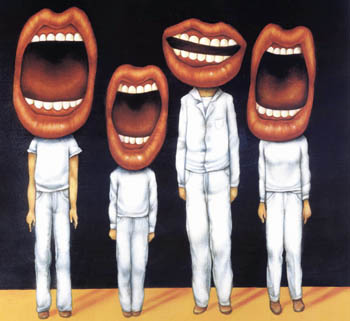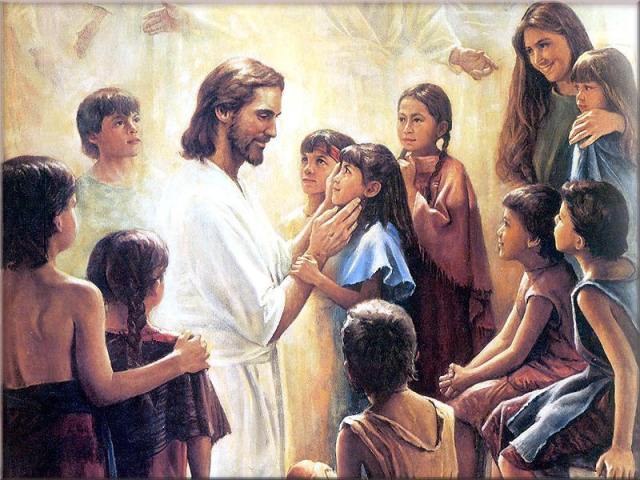A couple of months back, the article Why Generation Y Yuppies Are Unhappy got a lot of attention, as I believe it rang true for bunches of folks. The thesis of the article is that the expectations of young adults entering the work force today far exceed the realities they encounter, and that these expectations were created, in large part, by Baby Boomer parents who convinced their Generation Y children that they could “be whatever they wanted to be” and should just “follow their passion” with practically unbridled ambition. The article coins a new acronym for these delusional Generation Y’ers: Gen Y Protagonists & Special Yuppies (“GYPSYs”).
As I read the article, I couldn’t help but think about how the GYPSY worldview plays out in, and is reinforced by, contemporary American Christianity—which remains (as it has since the Pilgrims first set foot on Plymouth Rock) deeply and pervasively Protestant. GYPSY Christianity, of course, makes the faith all about “me”: “Did the sermon speak to me?” “Was the music to my taste and up to my standard?” It also encourages the GYPSY Christian to believe that his or her religious experience is wholly unique and is going to be a long upward trajectory from one religious high to another. In the GYPSY approach to the faith (similar to the GYPSY approach to the workplace), there’s very little room for the wisdom of the ages, for the patient working out of one’s salvation “with fear and trembling”, or for “filling up [in my flesh] what is lacking in the afflictions of Christ.” And, on all three of these issues, the dominant Protestant theology that suffuses American culture supports the GYPSY view, as it explicitly rejects the role of tradition and the authority of an identifiable “church”, endorses the view that a person’s eternal salvation is determined by the efficacy of a single moment in time when he or she “accepted Jesus”, and denies that temporal suffering plays any role in helping an individual reach Heaven.[1]
The GYPSY attitude is, of course, not limited to Generation Y’ers, especially as it is, in my opinion, a function of generations of American Christians being told the only thing that really matters in their faith lives is their own “personal relationship” with Jesus.[2] I certainly believe that was true of me when I was an Evangelical. When “personal relationship” is the be-all-and-end-all, then it’s natural to think that “I” (and I alone) get to determine what’s of value in the service on Sunday mornings—or whether going on Sunday mornings is even worthwhile at all. It also encourages the individual believer to conclude that there’s something particularly meritorious about a given work of charity or other religious endeavor because he did it, which takes the focus off the thing being done or the other person being served.[3] This me-centric view of things is only exacerbated by the Protestant view of the “priesthood of the believer,” which makes the individual Christian, relying on the “Bible alone”, the ultimate arbiter of doctrinal truth.
The unfortunate and nagging problem the GYPSY Christian ultimately encounters, as I can attest from personal experience, is that the reality of his faith life doesn’t live up to the expectations he has created for himself in his own head, and to which he feels entitled. So then what’s he to do? For myself, when I hit this expectation vs. reality gap, I initially just doubled down. “I’ll go to MORE stuff at church. I’ll do MORE Bible studies. I’ll hang out with my Christian friends even MORE.” I’m here to tell you—in the long-term, I don’t think that can work. It eventually just turns the faith into a chore, all the while it remains “all about me.”
Another troubling alternative that seems to be quite trendy among GYPSY Christians these days is to become almost-literal gypsies, wandering from one congregation to another (which often differ significantly in what they actually teach) in search of somewhere that will live up to their expectations of what their communal faith experience should be like. Unfortunately, at least from what I’ve observed, this often is driven by a desire to find a congregation that will provide a more dynamic and moving worship service, or more “family-friendly” programming—with the question of whether what the particular congregation in question teaches is doctrinally sound or not taking a backseat. This search for the congregation that meets my subjective needs, at the expense of determining the church that teaches objective truth, also (in my opinion) is bound to failure. The problem, of course, is that, even if a particular congregation sweeps me off my feet initially with its up-to-the-minute worship service and programming, those things inevitably grow stale—or the congregation’s staff changes—or the staff stays the same and they decide to do something new (which I don’t like as much as what they were doing when I first came). Then there’s always the problem that, once the initial glow rubs off, I discover my new congregation is full of a bunch of imperfect people, just like the last one I attended.
For those GYPSYs who’ve determined that wandering from congregation to congregation is futile, there today also is the allure of abandoning “the church” altogether. Indeed, in this day and age, attacking “organized religion” seems to be almost as popular among Christians as it is among non-Christians.[4] It’s also astounding to me how many folks today choose to identify themselves as “Jesus followers” instead of as “Christians.” At least to me, that seems to do nothing other than to serve to further isolate the self-proclaimed “Jesus follower” from all those other pesky “Christians” out there, both living and dead, with all of their baggage. The term “Jesus follower” (again, at least for me) conjures up the image of a solitary individual walking along a dusty road somewhere in the middle of nowhere without another soul around for miles. It’s not in any sense a communal notion. Rather, it reinforces the idea it’s just “me and Jesus.” And I think that’s really the point—deciding to be a “Jesus follower” instead of a “Christian” is a way of trying to remove oneself from all the difficulties that come with having to deal with other people. Plus, if you’re a “Jesus follower”, it’s easier to justify sleeping in on Sunday morning rather than pulling yourself out of bed to go to service with all of those “Christians.”
In my own journey, I never got to the point where I thought that checking out on “the church” was a real option. That option, for me, was foreclosed by what seemed to me then (and seems to me now) to be the absolutely clear teaching of the New Testament: Our Lord, when He was on Earth, established this thing called “the church” (which had visible form) and expected His followers—both then and throughout time—to be part of it. So deciding to opt out of “the church” just wasn’t on the table, if I was going to be even remotely true to Scripture.
But if checking out on “the church” wasn’t an answer, I was still left with the problem of a massive expectation vs. reality gap in my faith. And, despite the various criticisms I have raised regarding the GYPSY approach to faith, I am not trying here to suggest that GYPSY Christians are out-to-lunch when they sense there is such a gap in the Evangelicalism that, even today, continues to dominate American Christianity. Indeed, I wholeheartedly agree with the GYPSYs that the reality of American Evangelicalism doesn’t live up to what it promises and what the GYPSYs expect. Given this, the fundamental question remains: how does the gap get closed? Well, as anyone who’s read this blog before can surely guess, I’m convinced the only compelling answer to that question is: Catholicism.
Catholicism closes the expectation vs. reality gap by completely turning the tables on the GYPSY Christian. Whereas GYPSY Christianity is almost-exclusively focused on the expectation side of that equation (i.e., “What do I want from the church?” “How is the church going to recognize how special I am?”), Catholicism invites the GYPSY to reshape those expectations in light of a reality that seems too good to be true. Quite simply, what Catholicism offers the GYPSY Christian is Jesus Himself: “You’ve been looking for confirmation of how much God loves you and how special you are? You’ll never find that by trying to impress your personality on others, or even on God Himself, or by trying to manufacture ever-more-meaningful religious experiences for yourself, or by becoming the world’s greatest theologian, or by building a mega-congregation of your own. Rather, you’ll find it by considering the truth that Christ is Really and Truly Present in the Eucharist of the Catholic Church—and that Christ loves you so much that He literally becomes your food and your drink—so He can impart His own divine life to you—in the Mass celebrated by that Church.”
The Real Presence of Christ in the Eucharist is a reality that the wildest expectation of the GYPSY-est GYPSY cannot surpass. It is, quite literally, a miracle in which Heaven touches Earth—and it happens each and every day at each and every Mass celebrated in each and every Catholic church in the world.[5] And, what’s more, the Eucharist is not the only way that God’s heavenly grace is breaking through to touch the lives of men. In addition to that, in each and every Confessional, to each and every contrite penitent, the Church is offering grace beyond imagination—grace that washes away—with objective certainty—the guilt of even the most heinous sin as the sinner hears the words of Christ (spoken aloud by one of Christ’s priests): “I absolve you from your sins.”[6]
I’m convinced that the grace—abundant and overflowing—that is available in the sacraments of the Catholic Church is the only sure refuge for the GYPSY Christian who is longing for a meaningful religious experience but eventually runs head-long into the fact that, in this world, the life of faith is often one full of struggle and pain.[7] Those sacraments, however, are God’s gift to us because He, in His great love and compassion for us, desires to provide us His grace to sustain us so that we all, including those of us who are wandering GYPSYs, can reach what we all most desire—our home in Heaven.
[1] This is all in contrast to the teaching of the Catholic Church, as Nikki or I have discussed in a number of posts, including those here, here, and here.
[2] Protestant readers, don’t check out on me yet. As a Catholic, I believe 100% in the importance of having a “personal relationship” with Christ. I also believe, however, that my “personal relationship” with Christ is best developed and nurtured by being in communion with His Church—particularly through regular and frequent reception of the sacraments.
[3] The recent Broadway hit The Book of Mormon (which, with apologies to any Mormon readers, I will admit I have seen) captures this sentiment well in one of the songs sung by a young, gung-ho Mormon missionary (in a spoof of “Defying Gravity” from Wicked): “Incredible, I’ll do something incredible. I’m going to be the Mormon who changed all of mankind. It’s something that I’ve foreseen. Now that I’m 19, I’ll do something incredible that blows God’s freaking mind!”
[5] Nikki or I have written on the Eucharist in a number of posts, including the ones here, here, and here.
[6] See John 20:23 (“Whose sins you forgive are forgiven them, and whose sins you retain are retained.”). Nikki or I also have written on Confession in a number of posts, including those here, here, and here.

